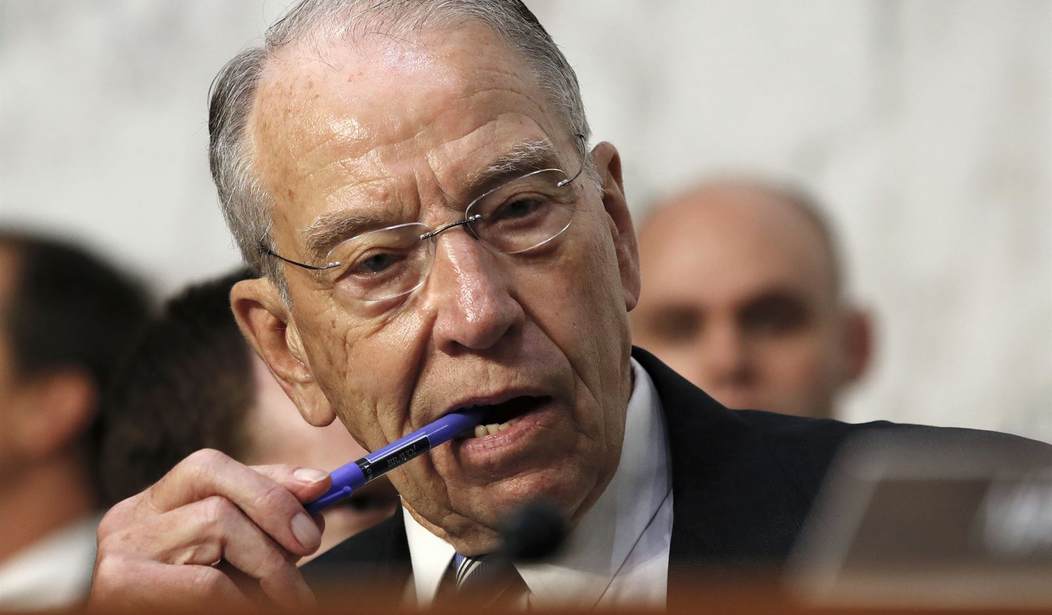Since the 2016 election cycle, barrels of ink of have been spilled over the issue of prescription drug prices and how, in today’s partisan atmosphere, it is the one issue that both parties agree is a problem and legislation will, therefore, be forthcoming.
It is true that there is bipartisan agreement on the problem and even, it appears, on some of the solutions. But it is also good politics, especially for Senator Mitch McConnell, who has the opportunity to turn the tables on Democrats and preserve the narrow Republican majority in the Senate for what is shaping up to be a difficult cycle.
Much as they were in 2016 and 2018, the rising price of prescription drugs will be a centerpiece issue for voters in 2020, and both parties will work hard to pin the blame on the other for Congress’s failure to pass meaningful legislative fixes. Democrats have traditionally held the high ground on drug prices with their populist (if completely unrealistic) proposals ranging from wholesale importation of drugs from Europe to single payer proposals that would destroy the employer-based system that the vast majority of Americans like and approve of.
But today, Republicans ranging from President Donald Trump to Senator Chuck Grassley are working on significant proposals that would have a real impact on Americans’ ability to afford the drugs that they need.
Senator Grassley’s proposal, in particular, would have a tremendous impact on high-propensity voters who are on Medicare. Oversimplifying things, Senator Grassley’s bill would implement two incredibly powerful mechanisms: cap the amount of money that seniors have to spend out of pocket in any given year on prescription drugs, and limit the ability of drug makers to charge taxpayers more for the same drug year-over-year.
Recommended
The first piece of Senator Grassley’s proposal would put a cap of $3,100 on out-of-pocket costs for people receiving Medicare’s prescription drug benefit. Right now, there is no cap and some people are forced to spend over $15,000 out of pocket. All but the wealthiest seniors could currently be wiped out by an exorbitantly expensive round of chemotherapy or other critical-but-pricey therapy. Senator Grassley’s bill would still give seniors skin in the game in the form of a deductible while limiting their potential exposure to a relatively reasonable level.
The second major piece of the puzzle is the penalty on drug makers who raise the price that they charge Medicare by more than the rate of inflation. Currently, taxpayers are on the hook for essentially whatever a drug maker wants to charge Medicare for their products. This new provision would stop drug companies from increasing prices more than the rate of inflation and require drug companies to pay the money back to taxpayers if prices rise above inflation.
While some have argued that this proposal amounts to price controls, it is nothing of the sort. Drug makers will be free to set their prices at any level that they wish, but their incentive to raise prices on their product with the expectation that taxpayers will pick up the tab will be reduced. Instead of depending on annual price hikes to produce increased revenues, drug makers will be incentivized to develop new and innovative drugs.
The cherry on top of these proposals is that they are expected to save taxpayers around $100 billion over a decade and, importantly, would save Medicare enrollees around $20 billion in out-of-pocket costs.
Looking at the Senate map in 2020, Republicans are defending three purple (at best) seats that will determine who occupies the Majority Leader’s office in January of 2021: Senators Martha McSally in Arizona, Cory Gardner in Colorado, and Susan Collins in Maine. Democrats, on the other hand, are defending only one vulnerable seat in Alabama.
Saving these endangered Senators who are facing uphill battles during a presidential election year will take some significant effort and creativity. Taking the cudgel of drug prices out of Democrats’ hands and turning it back on them would be a major step towards defending the Republican majority in the coming elections. Senator McConnell should take decisive action on drug prices, starting with Senator Grassley’s proposals, and dare Speaker Nancy Pelosi and her House Democrats to block it.
Robert Graham is the former chairman of the Republican Party of Arizona and served as a senior adviser to the Trump presidential campaign in 2016.

























Join the conversation as a VIP Member